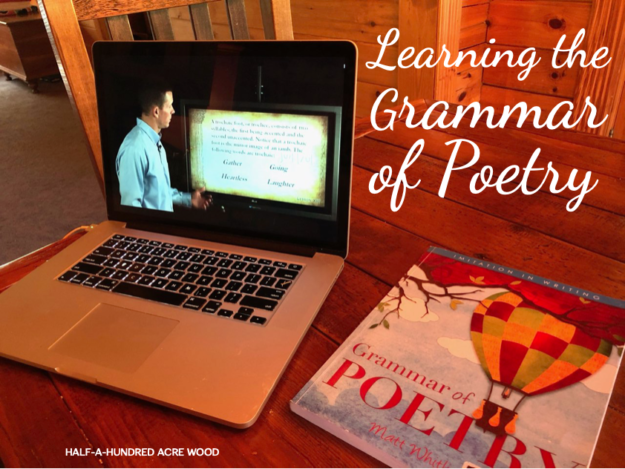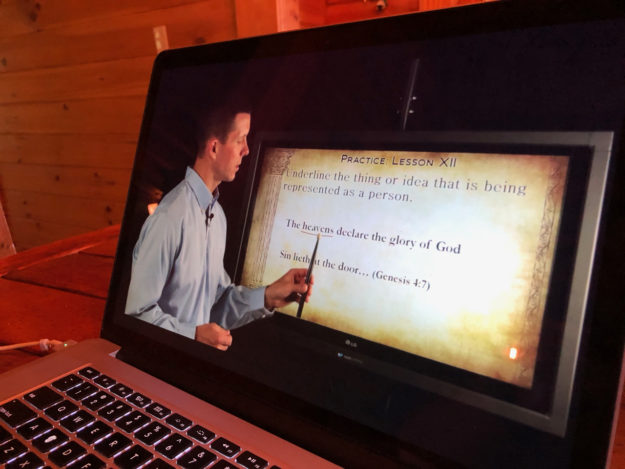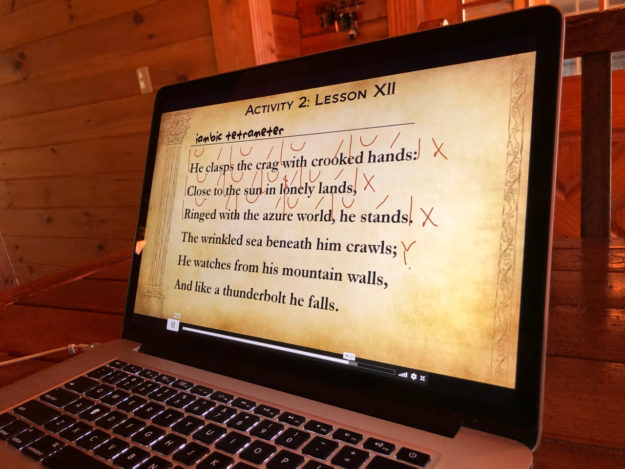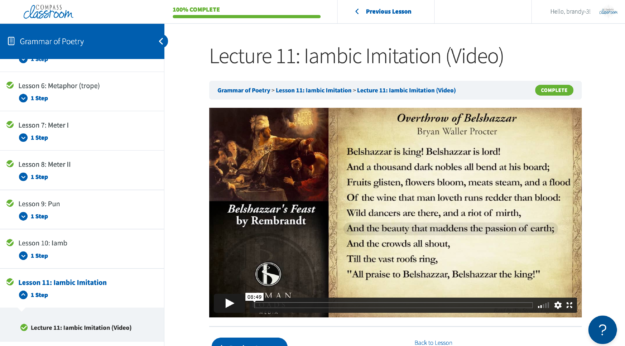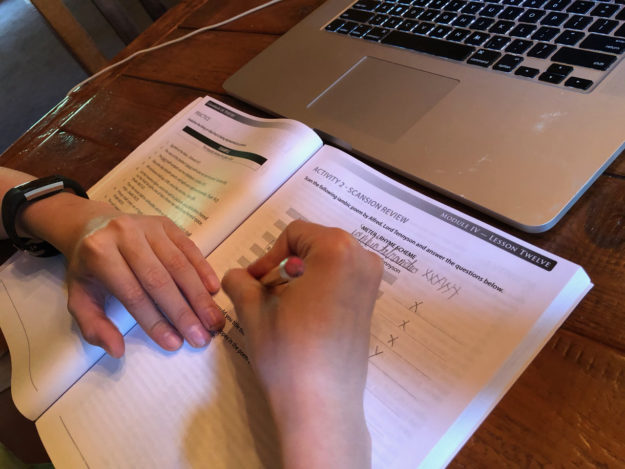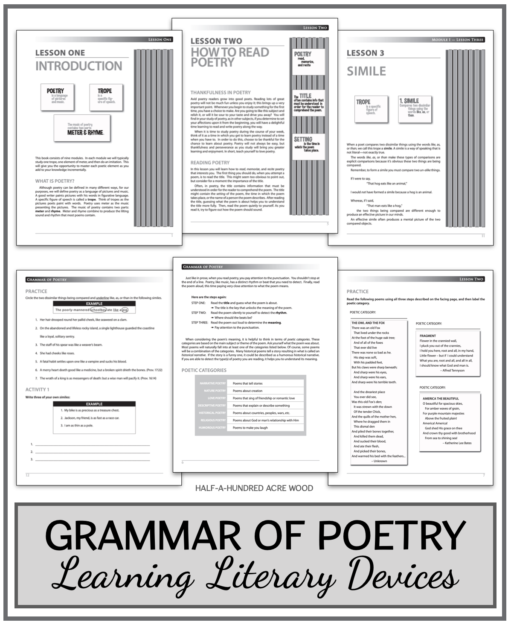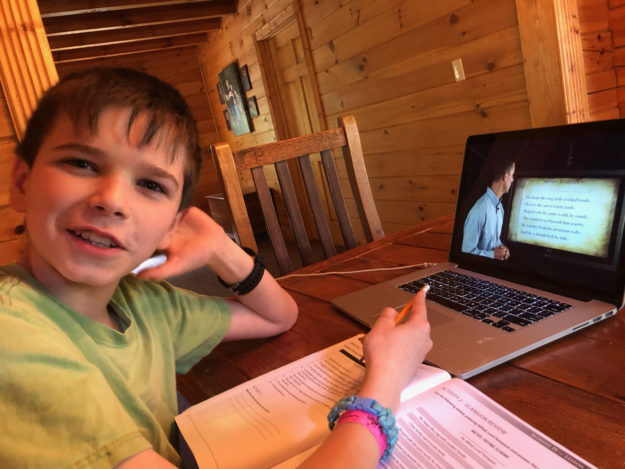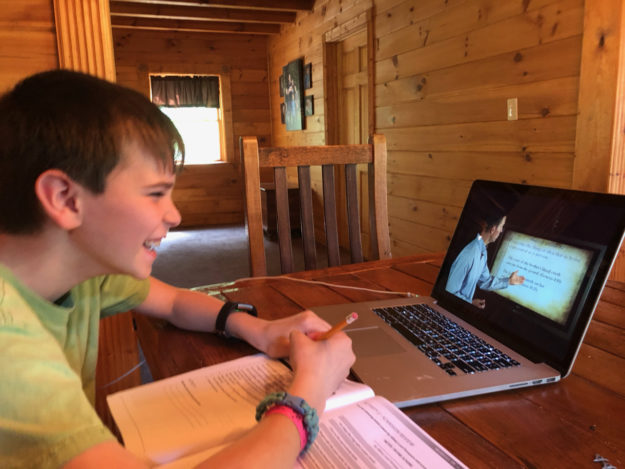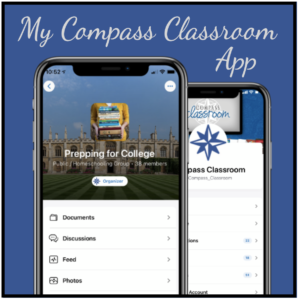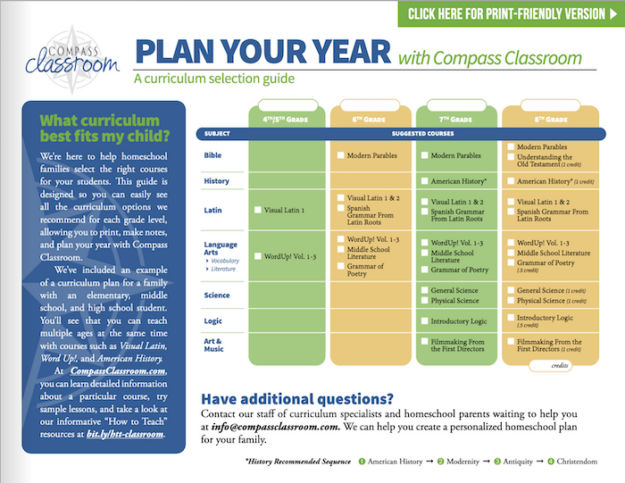In front of us there is a wall
That we must go around.
But horror struck upon us all;
Alas, the wall is round!
It circles us, a loathsome foe;
We’ve thought about where we should go,
But now -Alas!- we do not know
The way to leave this wall we’ve found.-“The Wall” by David Ferrell
When our second son embarked on a short semester-long poetry course during middle school, I had no idea that it would actually transform him into a poet (nor did he). What started as a simple act of obedience (to complete the coursework his mother assigned) turned into a bit of a passion. Since completing that curriculum, he has not only grown to appreciate poetry in general but has also written poetry to express his thoughts about God, about friends, about family, about life – and often as a way to minister to others. That poetry course? Grammar of Poetry.
Grammar of Poetry teaches the basic building blocks of poetry using real-life examples from scripture & Shakespeare to tongue twisters & riddles. Using the classical approach of imitation, students practice analyzing poetry (and language in general) while learning to craft their own poems.
Students learn the music of poetry through meter and rhyme while also learning to recognize and construct ten tropes including similes, metaphors, puns, personification, synecdoche, hyperbole, onomatopoeia, rhetorical questions, oxymorons, and euphemism.
Even for students who are not interested in writing poetry, the concepts in this course provide them with the tools to analyze and appreciate literature as they witness how great writers have used figures of speech (schemes and tropes) effectively. This, in turn, carries over to their own writing. The course teaches students not just how to interact with poetry but how to interact with language and literature in general.
Our third son also completed this course last year, and, although it did not transform him into a poet, it has helped him to better appreciate his older brother’s poetry – and to recognize literary devices in his reading and use literary devices in his writing. In both cases, our boys looked forward to their Grammar of Poetry lessons – and the assignments! This curriculum was one of their favorites, and it has improved their writing skills!
Appropriate for Grades 6 and up (including adults who are seeking to understand how poetry works), the thirty lessons in Grammar of Poetry can be easily completed in a semester and may be used to supplement a high school literature course.
On Sale through April 16!
Whether you’re diving into this as a new subject or stocking up for next year, don’t miss out on Compass Classroom’s Spring Sale where you can grab their courses at a significant discount. From April 9 to 16, 2025, take 30% off this course with the code SPRING30!
Try it free!
You can try two video lessons for free by clicking on “Try Sample Lessons” and download the first three lessons from the student book.
Although the videos are available in both DVD and streaming format, the program is also one of over 50 courses (consisting of over 1400 videos) offered in Compass Classroom’s monthly membership which is now available as an app so you can take your learning on the go! You can sign up for one free week to try everything out, including the programs we have used and recommended in the past.
You can also visit this helpful website which lays out how to plan your year using Compass Classroom.
You can also sign up for a free MyCompassClassroom account to experience discussion forums, support groups, and free courses!
If you have any questions about this course or about the Compass Classroom Membership, just give us a shout! We’ll be glad to help in any way that we can!

